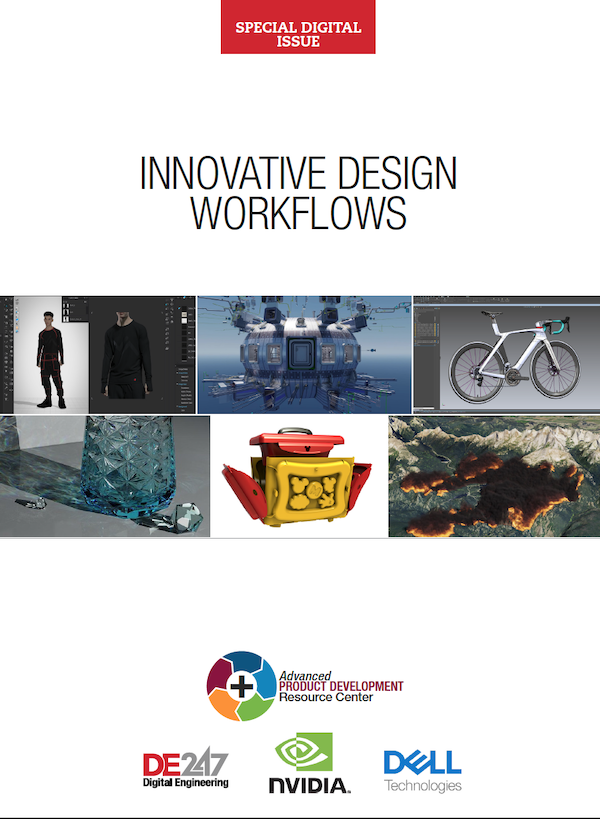Latest News
September 1, 2010
By Steve Robbins
 |
The September 2010 issue you are holding in your hand is a very special magazine. It marks the 15th year we have been publishing Desktop Engineering. Back in 1995, John Hayes and Tony Lockwood left their secure jobs on DE’s sister publication, Sensors, to take a chance at launching a magazine for design engineers. NT workstations had started to replace the UNIX Platforms and VAX clusters. The tagline on the first issue was “The Complete Computing Resource for Engineers.” The lead story described what changes were taking place in the design engineer’s world as desktops became more powerful. Software was well represented with analysis and virtual instrumentation leading the way.
Today we have massive computing power available to every engineer, with software and cores available on the cloud that are managed from the engineer’s desktop. Our tagline has changed slightly to “Technology for Design Engineering,” but our core focus over the years hasn’t really changed at all. We exist because you need information that makes your job easier, and technology is still changing at a rapid pace. Our job is to help you do what you do best: create and innovate.
Innovation In Action
A few weeks ago, I had the privilege of visiting Altair, a company that demonstrates the meaning of innovation. This engineering company has its roots in engineering consulting, and its management has a solid engineering origin. During this visit we were introduced to the BUSolutions project. A project like this could only happen to a team that was empowered to innovate.
Some engineers at Altair thought they could build a better city transit bus, and Altair management thought they could too. They have designed a bus that is stronger, lighter, and more fuel efficient. It also creates less wear on city streets and is easier to maintain.
A while back, I was lucky to attend a keynote speech on innovation by Dean Kamen, the inventor of the Segway. He explained that innovation doesn’t start when management comes asking you for an innovative new design, then says you must use the old design as a model, that you have a budget of $800,000, and not a penny more, and the design must be completed in a year. Altair didn’t do that. They started with a clean slate and turned their engineers loose to innovate. They empowered them.
Being there, seeing an aluminum bus frame hanging from a shop ceiling and all the different parts scattered around the floor with a group of excited 20-year-olds with grinders building something they knew would change the world of urban transportation was truly inspiring. You can see the full story on BUSolutions at Kenneth Wong’s Virtual Desktop at deskeng.com/virtual_desktop.
Looking Ahead
We believe in the innovative spirit. Desktop Engineering is here to enable that spirit. Being able to design with tools that empower you to create is important and valuable. DE’s job is to give you the information you need to make decisions about the technologies you use on a daily basis, and we plan to be here for the next 15 years as a guide to those important decisions.
Check out our December issue where we will celebrate our 15 years by illustrating what an engineer’s life was like in 1995 vs. today, and where technology is heading in the future.
Steve Robbins is the CEO of Level 5 Communications and executive editor of DE. Send comments about this subject to [email protected].
Subscribe to our FREE magazine, FREE email newsletters or both!
Latest News






